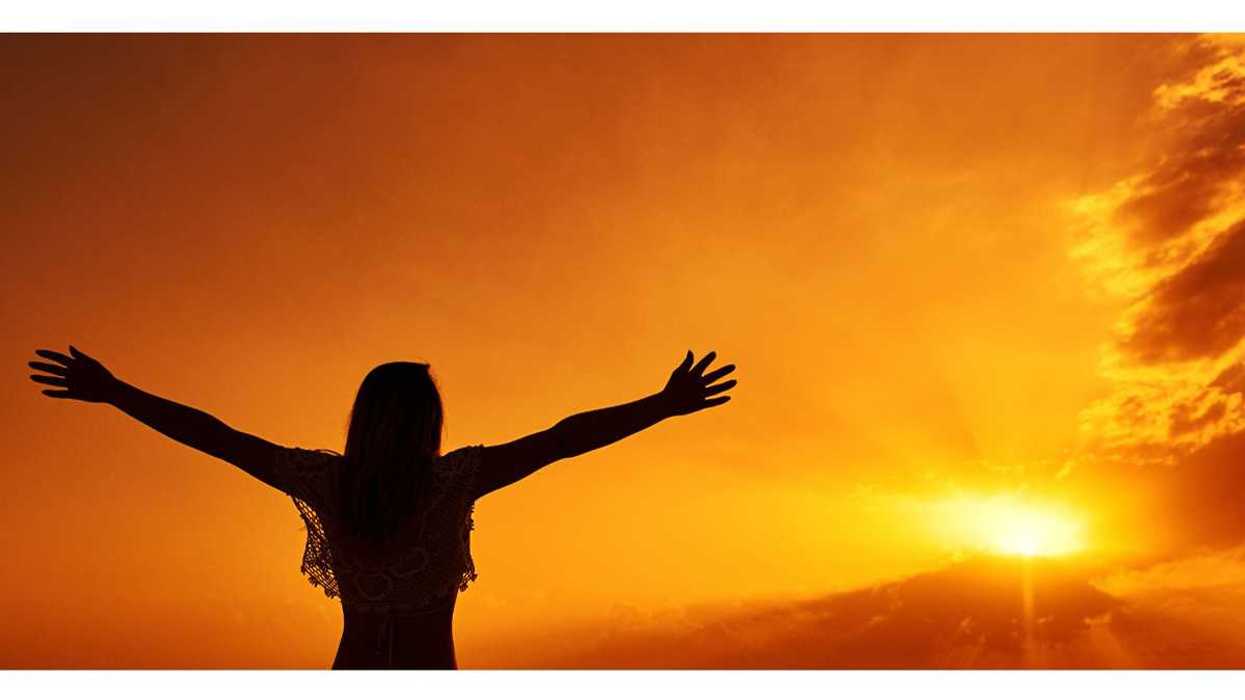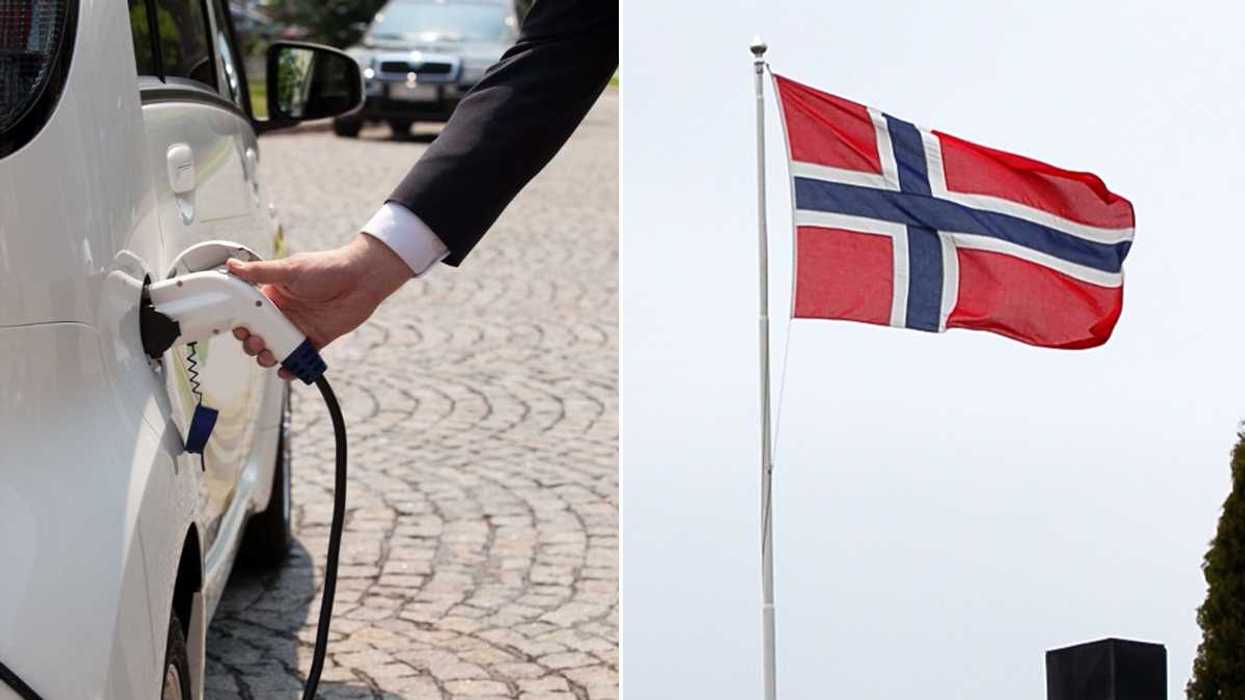In front of 55,000 fans on Sunday, Atlanta United FC played its first-ever Major League Soccer match. The crowd, double the size of an average MLS game, cheered on their team with flags waving, with scarves hoisted above their heads and chants emanating in unison. The expansion team’s fans had quickly embraced the raucous atmosphere and customs of a great soccer crowd.
However, they embraced one tradition too many. When the opposing team’s keeper took his goal kicks, some Atlanta fans chanted a homophobic slur that’s commonplace in the Mexican league and has been heard at other MLS stadiums in the past. It was an ugly, but not unique, start to the franchise. From hooligans to racists to homophobes, soccer has been battling bad fan behavior around the globe for decades.
What’s different here is that Atlanta has a chance to start fresh. As a new team, they can stop these acts of homophobia before they take root in their soccer culture. But it isn’t just on team officials; the club’s front office quickly condemned the chants, but for the club to keep the chants at bay, Atlanta United fans must commit to policing themselves.
The slur the Atlanta crowd used is well known among soccer fans. During the 2014 World Cup, the Mexican national team fans drew heavy criticism for continually yelling “puto” in unison at the tournament. Roughly translated, it means male prostitute, but is akin to calling someone a faggot. The team’s coach Miguel Herrera defended the fans’ use of the term at the time, arguing that it really wasn’t that big of a deal. Despite the backlash, the sport’s governing body, FIFA, let the Mexican federation off the hook for those matches, issuing no fines.
That leniency hasn’t continued. During qualification for the 2018 World Cup, Mexico has been fined four times by FIFA for the chanting of the slur at matches, costing the federation nearly $85,000. Eight other national teams have been fined for their fans’ homophobic chants as well. The policy hasn’t stopped fans: Most of the fined teams have had multiple incidents.
This is not the first time soccer has tried to figure out what to do with offensive supporters. Teams, leagues, and international governing bodies have long struggled with how to curb racist chants from fans directed at black players. From chants of “monkey” to fans throwing bananas, crowds have even been crude toward their own team members. Ahead of the 2006 World Cup, ESPN aired a lengthy segment on the epidemic of racism from European soccer fans, showing how some players were trying to fight back and enact change.
You’d like to think the problem has improved. It hasn’t. Despite fines and the threat of penalizing a team by forcing them to play in an empty stadium, these measures haven’t deterred the bigots, as evidenced by superstar Italian player Mario Balotelli still being subjected to racial abuse on the field earlier this year. Grant Wahl of Sports Illustrated—one of America’s top soccer writers—called for harsher penalties for teams with racist fans, including forcing teams to forfeit matches.
MLS has not had problems so severe that has had to threaten its teams in that way. And, with this specific incident on Sunday, Atlanta United FC officials quickly issued a statement that condemned the chants.
“We strive to foster a positive, enthusiastic, and inclusive environment for all fans, and inappropriate chants have no place at our matches,” the team said in a statement provided to ESPN FC. “Atlanta United does not support or condone the use of offensive language. Fans found to be participating in this behavior will be subject to removal from the building.”
Yet, soccer’s history with fans has shown that team actions alone won’t solve the problem. In a sea of 55,000 people, trying to police what fans chant can be like a game of Whack-A-Mole for teams. To eradicate homophobia in the stands, the fans themselves must make a stand against it.
What has been great about the recent rise of MLS teams in Seattle and Portland is the strong community of fans growing up around the team. Not only can those communities plan tailgates and pregame marches, they can also create agreed-upon norms of behavior to make certain acts unacceptable in the group. This week, that self-policing has begun, with Atlanta supporters groups such as Terminus Legion, backing the team’s statements against the chants.
Since Sunday, the team and the fans have said all the right things. Now they must actually show they’re willing to act on game day and not allow homophobia take a foothold in their fan culture—then other teams need to follow.
















 Leonard Cohen performs in Australia in 2009.Stefan Karpiniec/
Leonard Cohen performs in Australia in 2009.Stefan Karpiniec/  Enjoying a sunset.Photo credit
Enjoying a sunset.Photo credit 



 Amoxicillin is a commonly prescribed broad-spectrum antibiotic.
Amoxicillin is a commonly prescribed broad-spectrum antibiotic.  Chart: The Conversation, CC-BY-ND
Chart: The Conversation, CC-BY-ND
 An envelope filled with cashCanva
An envelope filled with cashCanva Gif of someone saying "Oh, you
Gif of someone saying "Oh, you
 Two penguins play by the waterCanva
Two penguins play by the waterCanva
 A parking lot for charging electric vehicles.Photo credit
A parking lot for charging electric vehicles.Photo credit  Oil production.Photo credit
Oil production.Photo credit  Sun shines over the Earth.Photo credit
Sun shines over the Earth.Photo credit